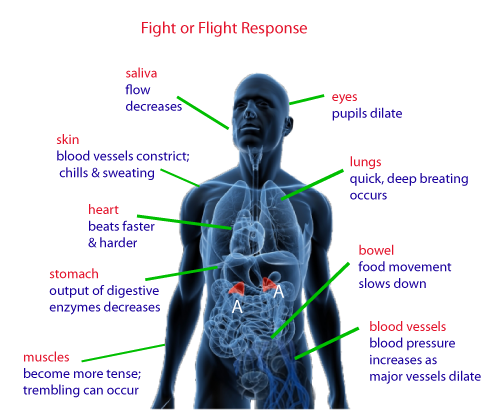Chapter 7: Stress
In this Chapter
1The ability to react quickly in response to threatening events has been with us since the time of our earliest ancestors. In response to impending danger, muscles are primed, attention is focused, and nerves are readied for action — the “fight or flight” response. In today’s complex and fast-paced world, stressors are more consistently psychological or socially based, and we face them with less reprieve.

2Stress is difficult to define because its effects vary with each individual. Specialists now define stress as any external stimulus that threatens homeostasis — the normal equilibrium of body function. Stress also can be induced by the belief that homeostasis might soon be disrupted. Lack or loss of control is a particularly important feature of severe psychological stress, which can have physiological consequences. Most harmful are the chronic aspects of stress.

3During the past several decades, however, researchers have found that stress can help the body, too. When confronted with a crucial physical challenge, properly controlled stress responses can provide the extra strength and energy needed to cope. Moreover, the acute physiological response to stress protects the body and brain and helps re-establish or maintain homeostasis. But stress that continues for prolonged periods can repeatedly elevate physiological stress responses or fail to shut them off when they are not needed. When this occurs, the same physiological mechanisms that are helpful can upset the body’s biochemical balance and accelerate disease.
4Scientists also believe that the individual variation in responding to stress is somewhat dependent on a person’s perception of external events. This perception ultimately shapes our internal physiological response. Thus, if we can control our perception of mild to moderate stressors, it may be possible to avoid some of their harmful consequences.